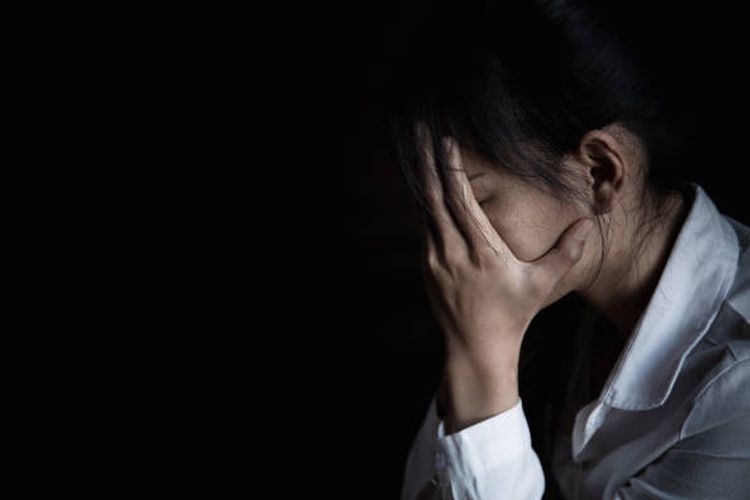

Do you ever feel overwhelmed by constant worry and fear, even when everything seems fine? You’re not alone. Anxiety disorders can creep into our lives unexpectedly, affecting our mental well-being and overall quality of life. But did you know that sometimes these disorders can be linked to physical illnesses? Let’s delve into the connection between physical health and anxiety to better understand how taking care of our bodies is crucial for a healthy mind.
Understanding Anxiety Disorders
Anxiety disorders are not just a case of feeling nervous or stressed; they are complex mental health conditions that can significantly impact daily life. People with anxiety disorders may experience persistent worry, fear, and even physical symptoms like heart palpitations or sweating. These feelings are often excessive and out of proportion to the actual situation, making it challenging to control them.
It’s essential to recognize the various types of anxiety disorders, such as generalized anxiety disorder (GAD), panic disorder, social anxiety disorder, and specific phobias. Each type presents its unique set of symptoms and challenges for those affected. While occasional anxiety is a normal part of life, an anxiety disorder involves more intense and prolonged feelings that can interfere with work, school, relationships, and other aspects of daily living. Seeking help from healthcare professionals is crucial in managing these conditions effectively.
Physical Illnesses That Can Cause Anxiety
Many people may not realize that physical illnesses can have a direct impact on our mental health. When it comes to anxiety disorders, certain physical conditions can play a significant role in triggering or exacerbating symptoms. Conditions such as thyroid disorders, diabetes, cardiovascular disease, and respiratory issues are just a few examples of physical ailments that have been linked to anxiety. The body’s response to these illnesses can often manifest as feelings of worry, fear, and unease.
The intricate relationship between the mind and body is undeniable. For instance, chronic pain from conditions like arthritis or fibromyalgia can lead to heightened stress levels and contribute to the development of anxiety disorders. It’s essential for individuals experiencing anxiety symptoms due to physical illnesses to seek proper medical attention and support. By addressing the underlying health concerns effectively, it becomes possible to manage both the physical and psychological aspects of one’s well-being.
Mental Health and Physical Health: The Connection
When it comes to mental health, the connection with physical health is undeniable. Our bodies and minds are intricately linked, influencing each other in profound ways. Physical illnesses can have a significant impact on our mental well-being, often leading to anxiety disorders. Chronic conditions like heart disease, diabetes, or thyroid disorders can trigger feelings of worry and fear. The stress of managing these physical ailments can take a toll on our mental health, manifesting as anxiety symptoms. Similarly, neurological conditions such as multiple sclerosis or Parkinson’s disease can also contribute to heightened levels of anxiety.
It’s essential to recognize that treating anxiety caused by physical illnesses requires a holistic approach that addresses both the mind and body. By taking care of your physical health through proper medical management and lifestyle adjustments, you can positively impact your mental well-being. Seeking professional help from healthcare providers who understand the intricate relationship between physical and mental health is crucial for effective treatment. Remember that you are not alone in navigating this complex interplay between your mind and body.
Common Physical Illnesses Associated with Anxiety
Anxiety disorders can often be linked to underlying physical illnesses, adding another layer of complexity to their diagnosis and treatment. It’s crucial to recognize that conditions like thyroid disorders, cardiovascular issues, and chronic pain can all manifest as anxiety symptoms. Thyroid imbalances, whether hyper- or hypothyroidism, have been known to contribute significantly to feelings of unease and nervousness in individuals. Similarly, heart conditions such as arrhythmias or congestive heart failure may trigger heightened levels of anxiety due to the body’s physiological response.
Chronic pain conditions like arthritis or fibromyalgia are also closely intertwined with anxiety disorders. The constant discomfort and limitations imposed by these ailments can lead to a persistent state of worry and fear in affected individuals. Understanding the relationship between physical health and mental well-being is essential in effectively addressing anxiety disorders that stem from underlying medical issues. Identifying and treating the root cause is key in managing symptoms and improving overall quality of life for those struggling with both physical illnesses and anxiety.
How to Manage and Treat Anxiety Caused by Physical Illnesses
Managing and treating anxiety that stems from physical illnesses requires a comprehensive approach that addresses both the underlying medical condition and the associated mental health challenges. It’s crucial to work closely with healthcare providers to properly diagnose and treat the physical illness causing the anxiety symptoms. This may involve medication, lifestyle changes, or other interventions tailored to your specific needs.
In addition to medical treatment, incorporating stress-reducing activities like mindfulness meditation, yoga, or deep breathing exercises can help alleviate anxiety symptoms. Building a strong support system of friends, family, or support groups can provide emotional reassurance during difficult times. It’s also essential to prioritize self-care by getting enough sleep, eating well-balanced meals, and engaging in regular physical activity.
Furthermore, therapy techniques such as cognitive-behavioral therapy (CBT) can be effective in helping individuals reframe negative thought patterns and develop coping strategies for managing anxiety. Remember that seeking professional help is not a sign of weakness but rather a proactive step towards improving your overall well-being. By addressing both the physical and mental aspects of anxiety caused by physical illnesses simultaneously, individuals can find relief and regain control over their health journey.
The Importance of Seeking Professional Help
Seeking professional help is crucial for individuals experiencing anxiety disorders linked to physical illnesses. A qualified healthcare provider can conduct a thorough assessment to determine the root cause of the anxiety symptoms. Professional guidance ensures accurate diagnosis and appropriate treatment plans tailored to address both the physical and mental aspects of the condition. This comprehensive approach increases the chances of effectively managing anxiety and improving overall well-being.
Therapists, counselors, or psychiatrists can provide valuable support through various therapeutic techniques such as cognitive-behavioral therapy (CBT) or medication management when needed. Collaborating with these professionals empowers individuals to develop coping strategies and skills to navigate their challenges successfully. Remember, you don’t have to face anxiety alone. Seeking help from trained experts not only validates your experiences but also equips you with tools for long-term symptom relief and better quality of life.
Conclusion
It is important to recognize that anxiety disorders can be triggered by various physical illnesses. Understanding the connection between mental health and physical well-being is crucial in addressing these issues effectively. By identifying the root cause of anxiety symptoms related to physical ailments, individuals can seek appropriate treatment and management strategies.
If you or someone you know is experiencing anxiety that may be linked to a physical illness, do not hesitate to reach out for professional help. With proper diagnosis and support from healthcare providers, it is possible to alleviate symptoms and improve overall quality of life. Remember, your mental health matters just as much as your physical health. Take care of yourself holistically and prioritize seeking assistance when needed. Together, we can work towards better understanding and managing anxiety disorders associated with physical illnesses for a healthier future ahead.







